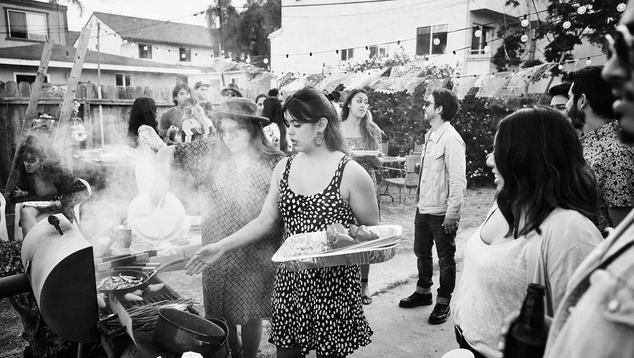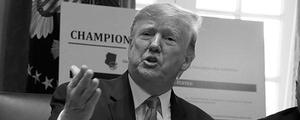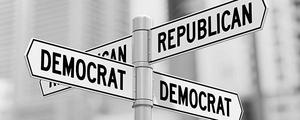WASHINGTON, D.C. -- The United States is a deeply polarized country where people's political party identification affects far more than their voting behavior. Carefully designed experimental studies [PDF download] have revealed that Americans treat people of the same party differently from members of opposing parties. Public opinion surveys also reveal that politics affects Americans' social relationships, ranging from how they get along with neighbors to their preferences for the person their son or daughter chooses to marry. Still other studies have revealed sharp partisan differences in Americans' trust in institutions like the media.
A recent Gallup/Knight Foundation survey extended this research to Americans' community-level attachments. The study looked at how people's perceptions of their community's political leanings relate to 1) their feelings of community attachment and 2) their trust in local residents.
To examine these issues, Gallup asked respondents to characterize their own political views, and the political leanings of the people who live in their local area, using a seven-point scale ranging from very liberal to very conservative. Each respondent was given a gap score based on the number of scale positions separating the two ratings. The maximum score of six is for those describing their own views as "very liberal" and the community as "very conservative," or vice versa. Respondents who rate their own views and those of their community the same were scored a zero.
The resulting gap between the respondent's ideology and their perception of the dominant ideology of people in their local area is used to define whether a respondent feels they live in an ideologically similar or dissimilar environment.
Republicans are the most likely to perceive their ideology as being similar to those in their community, while Democrats are least likely to do so.
-
With gap scores of zero to one, most Republicans (61%) and independents (53%) perceive little to no difference between their personal ideological convictions and the prevailing views of people in their area. Slightly less than half of Democrats (47%) perceive the same symmetry.
-
In contrast, with gaps of four or more points, 21% of Democrats believe they live in an area where residents hold significantly different ideological beliefs from their own. Sixteen percent of Republicans and 12% of independents feel the same way.
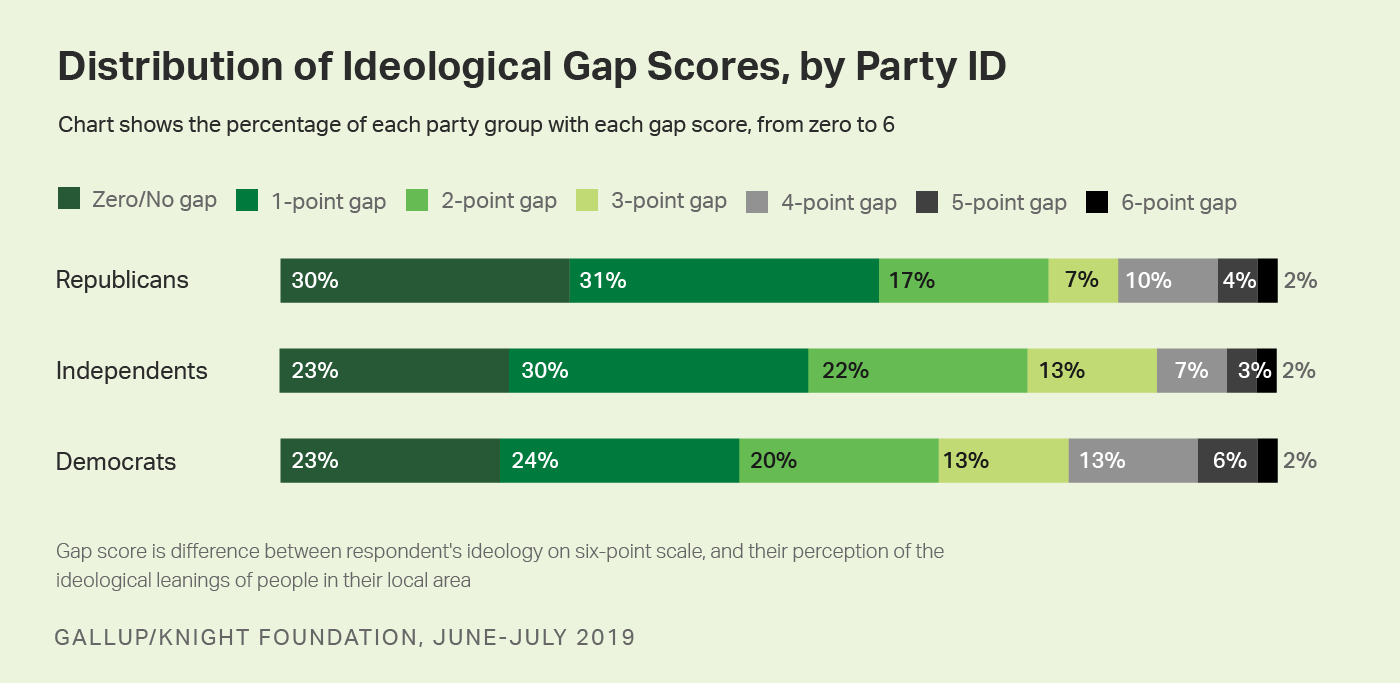
Community Attachment Suffers When Residents Feel Like the Political Outgroup
One way that Americans' perception of the ideological match between themselves and their community seems to matter is in their sense of community attachment.
Eighty-two percent of respondents living in politically compatible communities (ideological gaps of zero to 1) of any political group say they feel "very" or "somewhat" attached to their local community. Those who perceive a moderate ideological gap are nearly as likely to say the same (75%). A more significant drop in a sense of belonging occurs among respondents who perceive a large ideological gap, with 62% saying they feel "very" or "somewhat" attached. These patterns hold among Democrats, Republicans and independents.
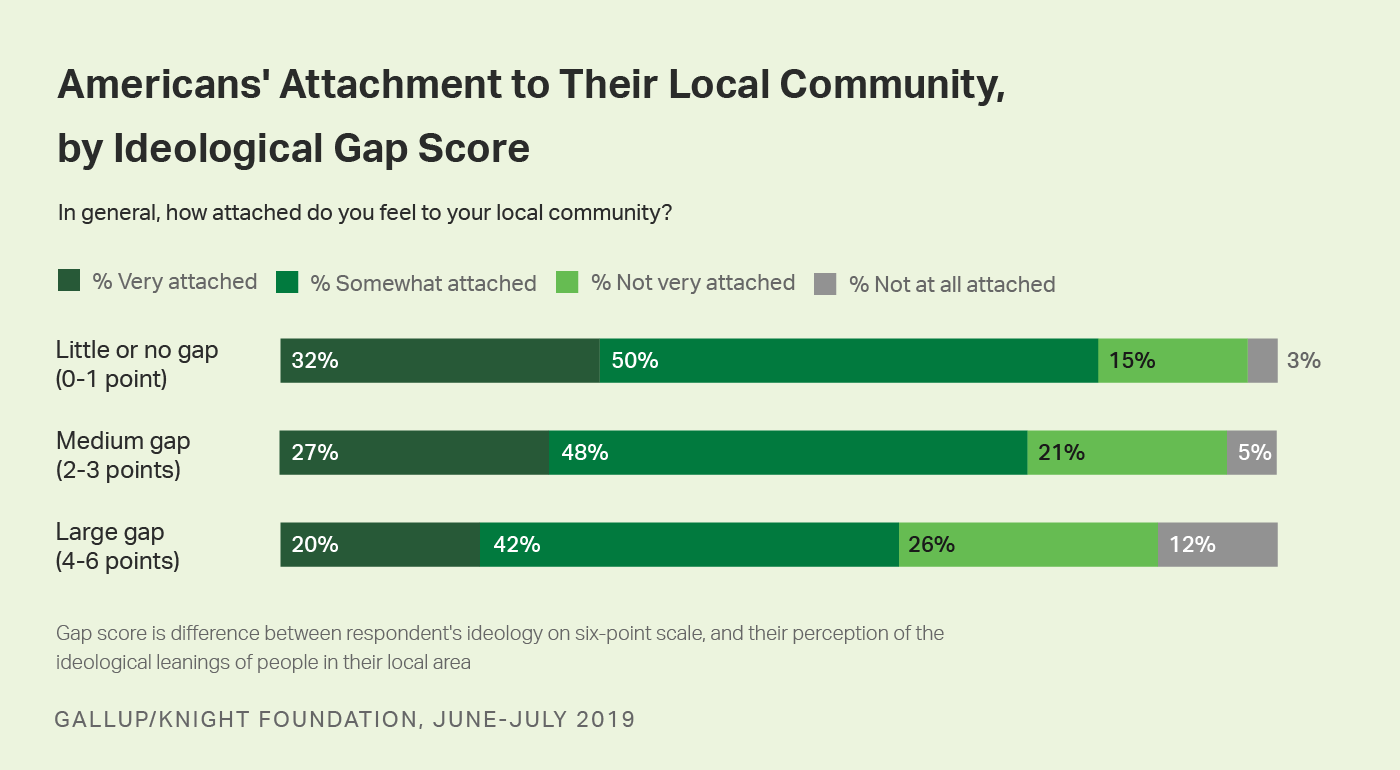
Republicans Far Less Likely to Trust Neighbors When Community Contrast Is High
In addition to measuring attachment to their community, the survey also asked respondents about their trust in people in their community, generally. Sixty-six percent of Americans, including equal percentages of Republicans and Democrats, say most people in their local area can be trusted. Yet, one's perceptions of their community's ideological leaning influences how much people trust their fellow residents, but only for Republicans, not Democrats.
-
After controlling for a number of demographic variables (gender, age, education, income and urbanicity), the predicted probability a Republican will say people in their local area can be trusted drops from 73% in perceived ideologically friendly territory (gaps of 0 to 1 point) to 45% in perceived unfriendly territory (gap of four or more points).
-
In contrast, the predicted probability that Democrats will trust people in their local area is roughly 70% regardless of the ideological gap.
-
Independents' trust in their neighbors falls between that of Republicans and Democrats in the large and medium gap groups, while all three parties have relatively high trust in the low gap groups.
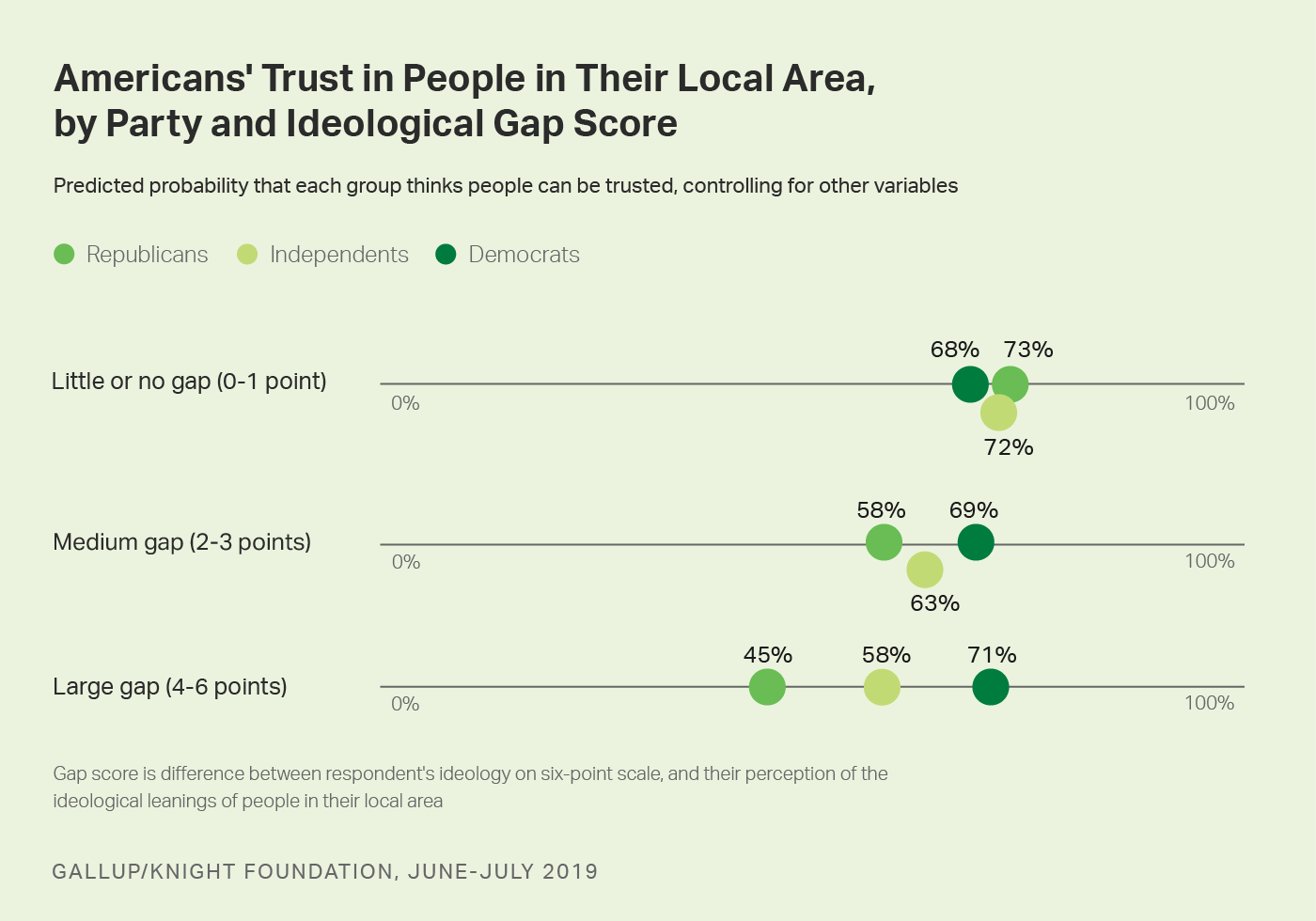
Bottom Line
Political polarization is not only relevant to Americans' voting behavior, news consumption and stance on policy issues, but is also a lens through which we can better understand how Americans interact in their communities. Americans' perception of how well the politics of that community matches their own political worldview closely relates to their own sense of community attachment. The closer the political alignment, the more attachment they feel. This is not only important on its own, but community attachment has been shown to be a meaningful proxy for civic and political engagement.
Likewise, the dearth of trust in one's neighbors expressed by Republicans living in areas perceived as politically liberal has far ranging implications. In particular, trust is an undervalued resource that powers economic prosperity and promotes political stability by reducing uncertainty and increasing people's willingness to give the other side the benefit of the doubt. The fact that the perceived ideological gap affects the generalized trust of people in the local area among Republicans and not among Democrats lends support to the contention of asymmetrical polarization.
Ultimately, given the high level of polarization in the U.S., the ideological gap between people's own views and that of their community appears to be a useful metric for understanding how Americans on opposing sides of the U.S. ideological spectrum relate to their community in important ways.
